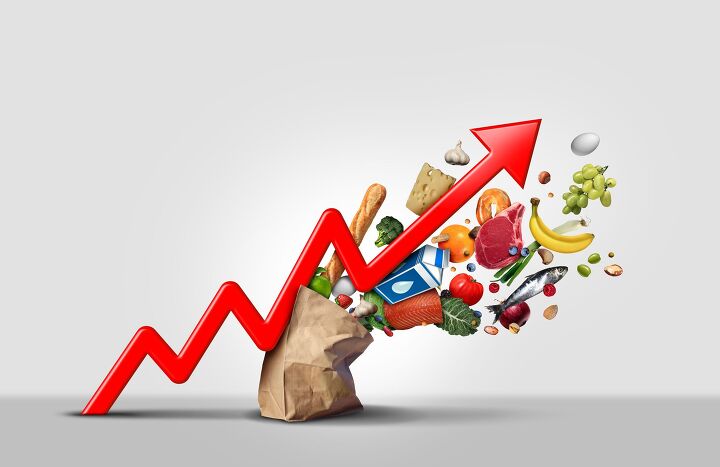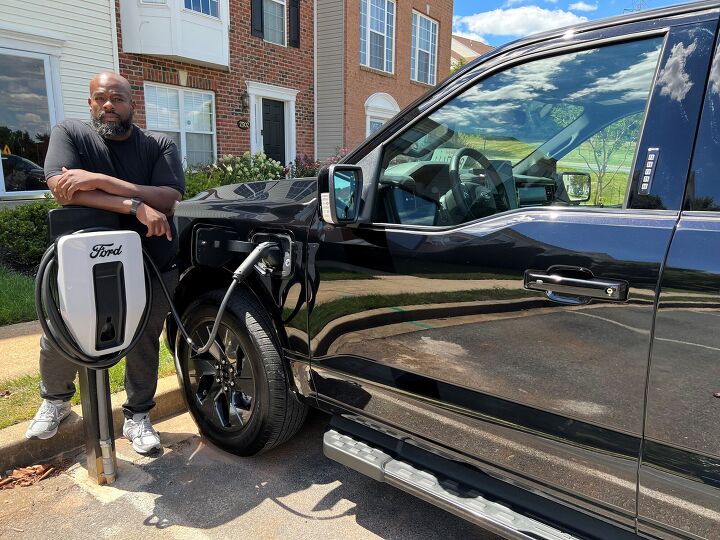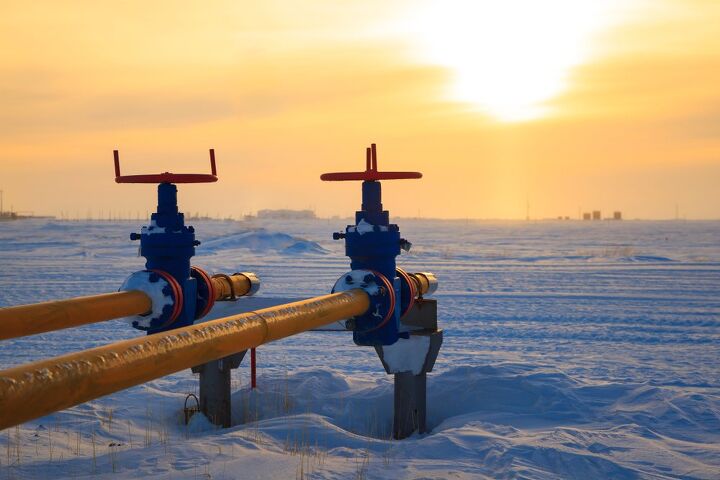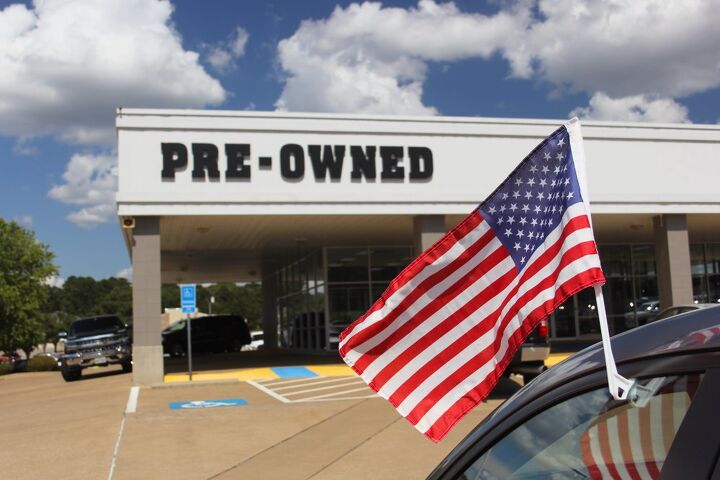#Inflation
Americans Are Falling Behind On Auto Loans at an Alarming Rate
The economy hasn’t tumbled into the massive recession that some predicted, but there are signs of trouble brewing in the automotive lending industry. At the end of last year, more subprime borrowers were 60 days or more behind on their auto loans than at any point since the Great Recession in 2009.
QOTD: Inflation Station
The other day I was at the grocery store, and I noticed that over the past few weeks I've changed my shopping habits to adjust for inflation. So I started wondering -- if some of us are changing how we shop for food, how are we adjusting for inflation when it comes to automotive?
Supply Chain, Chips, and Inflation: The Story Behind Low Sales
Following up on our sales post from earlier, we look to The New York Times, which has listed several possible reasons for why the numbers are dire.
The reasons are predictable, but that doesn't mean they aren't true.
Wholesale Used Car Prices Fall While Retail Prices Remain Elevated
A couple of months ago, we reported on the decline of wholesale used car prices but cautioned you not to get too excited about getting a killer deal on your next purchase. Now, The Hill has more news on the subject, and, unfortunately, it’s not all that great for car buyers.
QOTD: Why Aren’t EVs Becoming More Affordable?
Ford increased pricing on the F-150 Lightning EV substantially this week, citing “significant material cost increases and other factors.” The all-electric model now comes with an MSRP that ranges between $46,974 (for the base Pro trim) and $96,874 (for the Extended Range Platinum). All told, the decision has made the pickup anywhere from $6,000 to $8,500 more expensive than it was just a few days earlier. In exchange, Blue Oval has ever so slightly upgraded the maximum range of some of the lower trims. But some of us would probably prefer a more comprehensive explanation as to what’s causing EV prices to surge in general, because it’s not just Ford that’s been raising the sticker price of in-demand electric vehicles.
Automakers Still Dissatisfied, Lobbying Continues
Automakers are growing concerned about the future now that it looks like people have finally reached their breaking point in regard to elevated vehicle pricing. While the industry is citing inflation in the general sense, the truth of the matter is that companies’ own inability to manufacture vehicles and parts at anything approaching a normal pace resulted in price increases that vastly outpaced the devaluation of your preferred currency. This was made far worse by dealerships affixing their own markups to just about every model that compares favorably to walking.
EVs Are Becoming More Expensive, Not Less
A few years ago, the industry narrative was that all-electric vehicles would reach financial parity with their combustion-driven counterparts in 2025. The assumption was that this would gradually occur by way of ramping up battery production and leveraging economies of scale. However, reality had a different take, as the world is now confronting record-setting prices across the board. Manufacturer and dealer hikes have resulted in the average invoice of EVs rising to $54,000 — roughly 10 grand higher than the typical transaction price of gasoline-powered vehicles, according to J.D. Power.
With economic pressures spiking the value of all automobiles, hardly anything is leaving the lot for less than it could have been had for in 2020. But the increases seen on all-electric models are actually outpacing the models we’ve been told they’re supposed to replace.
U.S. Government Cancels Oil and Gas Leases Amid Record Fuel Prices
Despite the United States confronting some of the highest energy prices in its history, the Biden administration has canceled oil and gas lease sales in the Gulf of Mexico and Alaska’s Cook Inlet.
According to the American Automobile Association (AAA), national fuel prices are averaging out to a whopping $4.43 per gallon of regular gasoline. Diesel is much higher at $5.56 and is speculated to endure mass shortages in the coming months as reports from the Northeast have indicated there are already seeing record-low inventories. Over the past twelve months, fuel prices have risen by nearly $1.50 per gallon and most market analysts expect rates to continue moving upwards through the summer. Though they’re not all in agreement as to who should be blamed for our current predicament.
Tesla Raises Prices Twice This Week
Tesla is receiving a lot of attention for having increased prices twice in one week. The Model 3, often presented as the company’s most-affordable option catering to the masses, now starts at $48,440 in the United States. Its crossover equivalent, the Model Y, now starts at a whopping $64,400 while larger products have surpassed the six-figure point of entry. Despite being the brand’s oldest model, the Model S saw increases over the summer (when it was just $90,000) and has since settled into $101,200 before you’ve even said the words Plaid or Full Self Driving. But the Model X remains even more expensive at $116,200.
Worse yet, those who can afford such vehicles won’t even be able to get them in a timely fashion. Despite weathering COVID restrictions rather well vs legacy automakers, supply chain issues seem to have caught up with the EV manufacturer. Wait times on order vehicles are now several months long. Some customers are being told that they’ll likely have to wait until 2023, specifically those hoping to score a Model X.
Rivian Rolls Back Price Increase After Making Everyone Angry
On Tuesday, Rivian announced it would be increasing vehicle pricing by roughly 20 percent to account for higher inflationary pressures and higher component costs. It’s not the first electric vehicle startup to do so, or even the first automotive business that realized the hectic economic situation has created a window for expanding profit margins. But it was one of the few to get slapped in the face, metaphorically, after trying to get away with it.
Shares of the company began plummeting almost immediately as it endured widespread criticism, then people started canceling reservations. The plan would have made the $67,500 Rivian R1T electric pickup an $80,000 vehicle, while Rivian would have tacked on an additional $10,000 to the R1S SUV for a new ballpark total of $85,000. This included preorders, which would help to explain why everyone went bananas. But that particular aspect of the plan has been abandoned in an effort to save face and money.
The Great Used Car Buyup of 2021
With automakers having a difficult time keeping production schedules thanks to COVID restrictions nuking demand and upending supply chains, 2021 arrived with plenty of problems. Desperate to replenish fleets they had sold off while everyone was locked indoors, rental agencies went on a used car buying spree. But it wasn’t just rental fleets that needed to be restocked, dealerships are also finding themselves with fewer models on the lot than they’re accustomed to — which is a bad position to be in when surveys have revealed consumers are now willing to pay stupidly high prices for automobiles.
They’re reportedly going to great lengths to acquire used cars as the great buyup of 2021 continues.
Used Car Prices Have Increased 30 Percent
We’ve been covering the staggering increase of automobile pricing all year, starting with the second-hand surge created by rental industries sucking up used models to replace all the vehicles they dumped during the pandemic. A year of suppressed demand and prolonged restrictions absolutely crippled supply chains and placed the automotive sector in an extremely difficult position going into 2021. We wish we could say things were improving but the most heartening news we’ve come across was the possibility that select manufacturers might soon have a line on semiconductor chips — hopefully encouraging new vehicle production.
But the used market is still heading into uncharted waters. According to data collected by CarGurus, the typical price for a used automobile increased by about 30 percent against this time last year. Though more worrying is how much of that spike is consolidated within the last 90 days.
Question Of The Day: Have We Passed The Peak Of Cheap?
The good old days of late summer 2009.
It was a great time to buy a new car. Monthly new car sales in North America had plummeted to under 10 million units. Access to financing seemed to be near impossible for a lot of consumers. Brands were orphaned. Leasing collapsed. Banks were picky. The future was uncertain and… raw materials were cheap.
It was a good time to buy new at a deep, deep discount. Has that time passed?





























Recent Comments